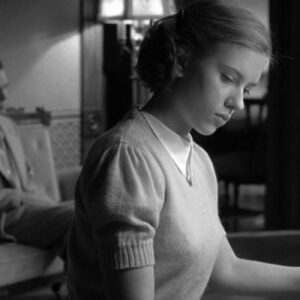In a fiery outburst that has captured national attention, conservative commentator Candace Owens has unleashed a blistering critique of ABC News anchors David Muir and Linsey Davis. Owens, known for her outspoken views and controversial commentary, did not hold back as she accused the prominent journalists of failing their professional duties.

Owens’ remarks, delivered on her popular podcast and through various social media platforms, come amid growing criticism of mainstream media’s handling of current events. She has labeled Muir and Davis as “a disgrace to their profession,” sparking a heated debate about media integrity and journalistic standards.

“David Muir and Linsey Davis have consistently demonstrated a shocking lack of journalistic integrity,” Owens declared. “Instead of delivering unbiased news, they’ve become mouthpieces for a particular agenda, distorting facts and failing their viewers. Their approach to journalism undermines the very principles of objectivity and fairness that the profession is supposed to uphold.”
The controversy centers around recent reports and coverage by Muir and Davis that Owens claims have been heavily biased. She pointed to specific news segments and editorial decisions that she argues have misrepresented facts and contributed to a polarized media landscape.

David Muir, the anchor of ABC World News Tonight, and Linsey Davis, the co-anchor of ABC’s weekend news, have been accused by Owens of allowing their personal biases to influence their reporting. This criticism reflects broader concerns about the perceived erosion of objectivity in mainstream media.
Owens’ scathing comments have fueled a wave of reactions from both supporters and detractors. Proponents of Owens’ perspective argue that her critique shines a light on critical issues within the media industry, emphasizing the need for greater accountability and transparency. Critics, however, accuse her of attempting to undermine trust in the media for political gain, questioning whether her motivations are driven by personal or ideological agendas.
In response to Owens’ claims, ABC News has defended its anchors, asserting that Muir and Davis adhere to the network’s standards of journalistic integrity and strive to provide balanced and accurate news coverage. The network has highlighted its commitment to delivering news that is both factual and fair, despite the criticisms it faces from various quarters.
This latest clash between Owens and the media highlights the growing tensions surrounding journalism and the challenges of maintaining objectivity in an increasingly polarized environment. As the debate rages on, the spotlight remains on how media figures like Muir and Davis will navigate these criticisms and whether their approach to news reporting will evolve in response.
Candace Owens’ powerful critique underscores a critical moment in media discourse, where questions about credibility, bias, and professional standards are at the forefront. Whether this will lead to a broader reevaluation of media practices or merely add to the existing controversies remains to be seen. For now, Owens’ outspoken challenge to Muir and Davis has ensured that the discussion about media integrity and accountability is far from over.






